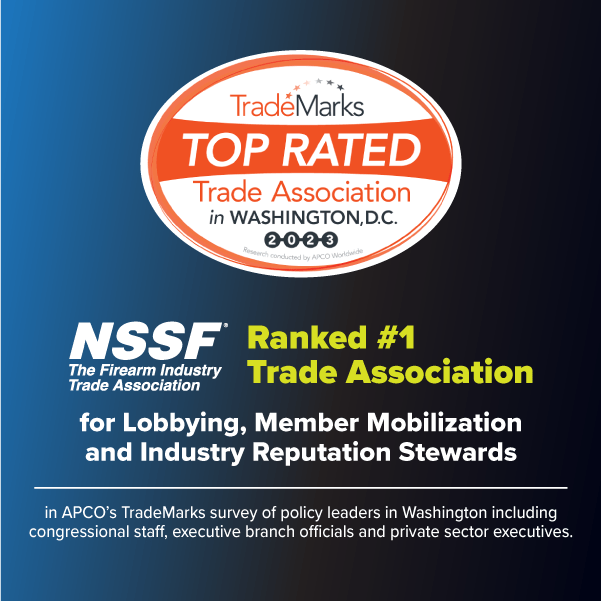 Back to News
Back to News
December 13, 2022
Bank CEO Peddles Mass Suspicion on Gun Rights at New York Times Conference
A New York Times conference featured a bank CEO pushing the financial industry to track Americans making purchases at retailers and monitor their “suspicious activity” under the guise of “reducing gun violence.”
Amalgamated Bank CEO Priscilla Sims Brown was the special guest at the Times’ DealBook confab and was interviewed by Andrew Ross Sorkin. He’s the Times’ columnist who previously proposed the gun buying monitoring scheme and spelled out the “next steps” in a column highlighting Sims Brown’s efforts after an international financial standards board adopted her petition to create the tracking codes.
Putting even a little thought to the idea reveals the serious flaws of the plan. Implementing the enormous system to track the private financial transactions will create a myriad of privacy and civil liberty concerns and no doubt is ripe for abuse.
Gun Control Dragnet
Sims Brown lobbied the International Organization for Standardization (ISO) to create a gun-related Merchant Category Code (MCC) for credit and debit card companies to use to track cardholders’ purchases of firearms and ammunition. The ISO adopted the proposal and banks are beginning to use them. Listening to Sims Brown forecast what’s ahead, her true gun control aim is revealed. It’s a dragnet for law-abiding Americans.
“We’re at the very early stages of this –,” Sims Brown told Sorkin and the audience. “But as this is implemented, those scenarios will be used.”
By “those scenarios,” she means “detection scenarios” in which a particular purchase prompts a bank to file a Suspicious Activity Report to the Treasury Department’s Financial Crimes Enforcement Network. Here’s how the MCC tracking will reportedly work. Purchases made at retailers selling firearms or ammunition would be assigned the new code for purchases. The MCC won’t identify what is in the customer’s basket, so it could be a total purchase for a firearm and several boxes of ammunition. It could also include a new tent, sleeping bag, propane stove, waders, decoys, blinds and other outdoor gear. The total cost could be flagged as “suspicious” since it might be an outlier on a customer’s purchase history. That doesn’t make it nefarious, though.
Media reported the proposal won’t have its intended effect. “The payment network and its banking partners would have no idea if a gun-store customer is purchasing an automatic rifle or safety equipment,” Bloomberg News reported. Banks aren’t saying what purchases would be “suspicious.”
Just a Steppingstone
The MCC scheme has caught the attention of Congressional gun control politicians. Legislation has been introduced in the U.S. House of Representatives, H.R. 5764, by Reps. Madeleine Dean (D-Pa.) and Jennifer Wexton (D-Va.) and in the U.S. Senate, S. 3117, by Sens. Edward Markey (D-Mass.) and Elizabeth Warren (D-Mass.). That legislation, The Gun Violence Prevention Through Financial Intelligence Act, would provide banking institutions the cover they need to track purchases by requiring the Treasury Department’s Financial Crimes Enforcement Network to provide “guidance” needed to institute the MCC.
“Financial institutions have a legal obligation… to have programs in place to help detect and report suspicious activity, but they have to know what they are looking for,” Rep. Wexton said.
Rep. Dean has praised the back door gun control effort, too. “Financial institutions already have proven systems in place to identify suspicious behavior and purchasing patterns,” she wrote in a release.
Still no one has offered what “suspicious behavior” or “purchasing patterns” would be flagged. The questions are endless, answers few and the threat to Constitutional rights high.
Trudging Ahead. Trampling Rights.
Sorkin hypes his work in getting the MCC code established. He told the Dealbook audience, “This is an emotional topic for me in many ways… because back in 2018 I started writing about the role of guns in our society… and the role of credit card companies and banks in financing mass shootings.”
Sorkin stated his belief that lawful firearm retail businesses and the already-highly regulated Federal Firearms Licensees (FFLs) which provide for the legal exercise of the Second Amendment should do their part to create the backdoor database of gun buyers – something Congress is prohibited by law from doing on their own.
“Merchants must start using the code, and not obfuscate transactions by using other classifications,” Sorkin wrote. “Most crucially, the payments industry needs to develop and refine software algorithms for identifying suspicious activity…”
There are those words again – “suspicious activity.”
The suspicion is better reserved for those who would compile lists of Americans lawfully exercising their Constitutional Second Amendment rights. The right to keep and bear arms begins with the ability to make a purchase at the retail counter. Financial industry power players, though, are twisting their roles to facilitate legal transactions into social credit scores that put Americans on secret watch lists.
The financial industry doesn’t need to be suspicious of gun buyers who already are subject to FBI National Instant Criminal Background Check System (NICS) verifications. This move, though, is reason enough for Americans to be suspicious of “woke” banking CEOs doing the bidding of gun control politicians.
You may also be interested in:
Gov. Cuomo spiked N.Y. Gun Rights. Crime is Soaring and he answers, ‘You Figure it Out!’
Categories: BP Item, Featured, Government Relations, Top Stories









